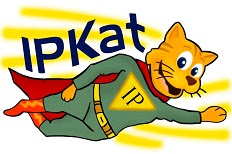This month I have been following news regarding ‘the Cost of Knowledge’. For those of you who are not aware of this situation, scientists all over the world are signing a petition to boycott academic publisher Elsevier. At the moment there are more than 5000 signatories of the manifesto. The point in discussion is the 'exorbitantly high' prices that Elsevier's scientific journals has in place and the 'huge profits' that they are making. Apart from the cost/value issue academics on the field also noted that publishers “often force libraries to subscribe to packages of journals, in which less relevant titles are pushed along with essential magazines”.
I believe that there are many others publishers that should be at the end of this story (and not only Scientifics ones perhaps?). Yet the target is Elsevier been the largest publisher of scientific journals (in 2010 it published about two thousand journals and had a profit of 847 million Euros).
The boycott
Well, very simple...researchers say they will not publish more in journals of the Elsevier’s group and moreover neither will act as peer-reviewers. The petition has been supported also by Gowers, from Cambridge University, who posted here some interesting point of views ( now with more than 300 comments).
Today I noticed that my query: what about other journals/areas, is also a reservation that others academics have; Ernesto Galvão, a professor at the Universidade Federal Fluminense, Brazil and one of the signatories of the manifesto, noted: “there is something very wrong with the whole system of publishing scientific articles". Hence, we can say that some Scientific academics are discontent with publishers.
A model is needed to replace the current system, but which one?
Kenneth Campbell, State University of Rio de Janeiro (UERJ) and editor of the Brazilian Physics, published by Uerj, and associate editor of American Journal of Public Health, United States - remembers that in some open access journals from abroad, the authors must pay a publication fee – a practice which is not common in Brazil. He explains that if this is the way to go, funding/grants will be diluted. Yet, he noted that at this point there is not a model but in any case, he does not agree with the ‘oligopolistic’ one that exists at the moment.
Ernesto Galvão mentions the model followed and applied by ‘arXiv’ which is a public repository of articles (used by sciences’ researchers). He says that this system also has a “mechanism for validating the quality of the articles”. He also suggests that there are other models and that combining some kind of peer review and a low cost of dissemination is the way to go.
What Elsevier says...
The publisher released a statement that argues that publishers are necessary for the proper functioning of science. It explained that the market i.e. research, works more efficiently and effectively because of the value added by publishers through the process of publication.
An IP point of view, if any...
Copyright and thus, economic rights: authors are not claiming that they want payment for their work; they want the work to be more ‘economic’ accessible – that is different, so not really IP related. Why then I bring this issue into your attention? Academics/professionals are the creators and authors of the work - the ones that are sowing. Yet, while they are not looking to reap what they have sown, they do indeed have the right to have a said. There is the need of a balance – the case in point; academics query ‘the cost of knowledge’.
There is the need also to consider the other side of the coin: to publish, to print, to distribute and to advertise do cost money and these costs need to be cover by someone somewhere; publishers are not charities.
What is your thought in this matter?















1 comments:
Write commentsReal academic reviewing can not occur BEFORE publication. Because real scientific reviewing allows ALL peers of a field to review every single paper and NO paper should be censored only based on a select few ( in reality these peer-reviews of today are nothing but a censorship commitee ).
Reply/ Gurra